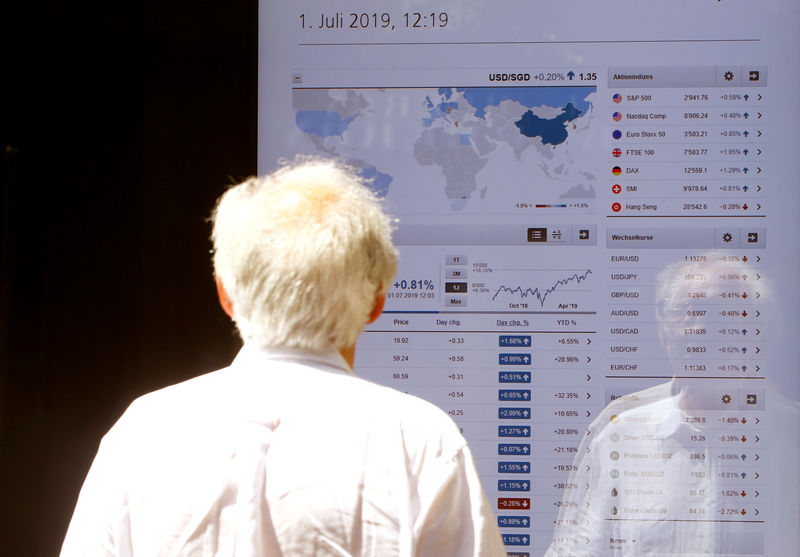ZURICH/LONDON (Reuters) - Swiss stocks traded without major glitches as flows shifted to the domestic bourse from European Union exchanges on Monday, the first day they were banned from trading on platforms within the bloc amid a deepening rift between Switzerland and Brussels.
Eleven of Switzerland's top 20 stocks by market capitalisation including Nestle (S:NESN), Roche (S:ROG), Credit Suisse (S:CSGN) and Novartis (S:NOVN) saw below-average volumes across all trading platforms, an analysis of Refinitiv data showed.
But 15 of the top 20 by market size experienced a big jump in the amount of activity registered on the Swiss stock exchange, SIX.
If the trend is sustained, that would suggest the domestic bourse will benefit from the blockade, but it will stir concerns that some investors will steer clear of the Swiss market as a whole as the heated row over a stalled partnership treaty deepens.
Brussels blocked the trading of Swiss shares on EU exchanges after talks to resolve a dispute over the treaty collapsed last month. The Swiss government retaliated last week forbidding access to its stock markets.
"There's going to be some Swiss equivalency shift demand shift in there," said one London trader noting that flows may also be skewed because it was the first trading day of the month, quarter and H2. A buying spree also swept European stocks due to fresh optimism about a resolution to the U.S.-China trade dispute.
"But I think it may become clearer to see going forward," he said.
The ban means major institutional investors, which have access to SIX, move their business there, trade over-the-counter or use some investment banks' own internal trading platforms, called "systematic internalisers".
Smaller asset managers without access to exchanges would have to use their brokers to do so, adding to costs and making executing trades more complicated.
Many investors see the escalating dispute as a test of how Brussels will treat Britain as it negotiates its exit from the EU. Switzerland has said market equivalence is a technical matter that should be not used to make a political point.
On the whole though, dealers and fund managers said they did not see a major disruption in trading or immediate impact on prices.
Gilles Guibout, fund manager at AXA Investment Managers in Paris, said his company had made a "few adjustments" but nothing fundamentally different to continue to trade Swiss shares.
A spokesman for the Swiss stock exchange said trading was "unremarkable".
"Brokers and banks are set up to do it. So it's not a massive issue and it doesn't restrict liquidity particularly," said Edmund Shing, global head of equity derivatives strategy at BNP Paribas (PA:BNPP).
Last week, many European stock investors and brokers rushed to find workarounds before the measures were put in place to avoid any disruption. EU exchanges would typically see almost a third of the volume in Zurich-listed shares.
UNFAZED BUT FLOWS CHANGE
Even as fund managers, dealers and other investors appeared unfazed by the move into uncharted territory, an analysis of the trading volumes showed how the ban has already upended some flows.
For instance, at the close in Zurich, some 1.5 million shares in pharmaceuticals company Roche had traded on SIX, which was some 10% above the 30-day daily average.
Total activity in the stock across all venues was 1.96 million shares, just two thirds of the average.
In Credit Suisse, SIX volumes accounted for 10% more than usual, but overall volumes in the stock were just 84% of the average.
There were exceptions, with stocks drawing greater interest as investors piled into assets considered riskier after Washington and Beijing agreed on Saturday to resume trade talks, averting a further escalation of a protracted dispute.
For instance, UBS (S:UBSG) saw a quarter more volume on SIX than usual and total volumes were in line with the average. The bank is also listed in the United States.
The Swiss Market Index (SSMI) ended the day up 0.7%, in line with the broader European market. (EU)

The index has a market capitalisation of about 1.1 trillion euros ($1.3 trillion), more than 10% of the pan European STOXX 600 (STOXX) index's total.